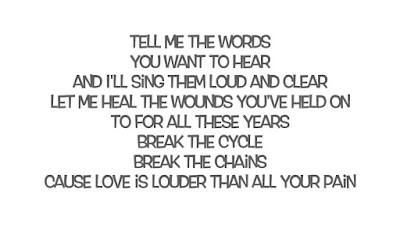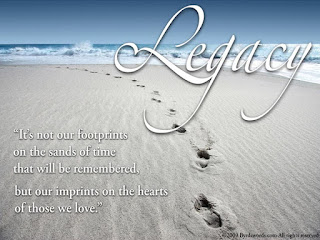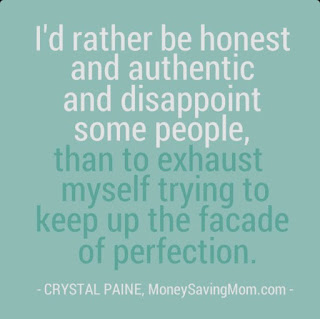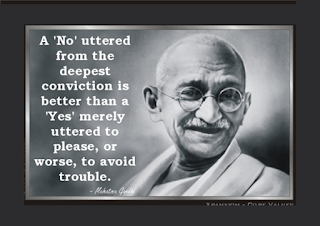“The way you love yourself is a direct reflection
of how your parents
loved you.
If they were critical, shaming, judgmental and
perfectionist; then that is how you will treat yourself.
If they didn’t support you lovingly then you will
struggle to be
assertive, to protect yourself properly
and to ask directly for what you
want.
Real healing means knowing how to
undo the
damage done by neglectful and toxic parenting styles.”
~ Richard
Grannon.
As often happens my
mind leaps in to try to make sense of what happened to me in my life and as a
result changed the way I perceived the experiences of my life.
I know that my "door mat" / codependent patterns of behaviour stem from how I was treated as a child. However, was that so very different from how most children of my era were treated? I know that in my youth "parents and teachers" were always right. They were critical and demanded perfection. Is that a bad thing? Where does the line shift from teaching good values and work ethic to being shame producing judgmentalism? Is it in the words used, or the lack of validation of effort? Is it the implication that only perfection is rewarded with loving attention? Are the subliminal messages of words or actions what form our early impressions of self-worth? What failed to happen in my childhood that I was left feeling so very unlovable?
I know that my "door mat" / codependent patterns of behaviour stem from how I was treated as a child. However, was that so very different from how most children of my era were treated? I know that in my youth "parents and teachers" were always right. They were critical and demanded perfection. Is that a bad thing? Where does the line shift from teaching good values and work ethic to being shame producing judgmentalism? Is it in the words used, or the lack of validation of effort? Is it the implication that only perfection is rewarded with loving attention? Are the subliminal messages of words or actions what form our early impressions of self-worth? What failed to happen in my childhood that I was left feeling so very unlovable?
So then the question becomes, if I grew up with this self-view that I am unworthy, what exactly was it that made me believe this to be true? Where did I cross the line into feeling that I was so unworthy that I did not deserve to be assertive, to protect myself and to be aware that I had the right to my own needs and wants?
How does one undo or change when one is unaware that there is anything wrong? I always knew I was unhappy with how I felt about myself, but it was not talked about. I was able to function, to go to work, to establish a life, a home. But I also always knew that I was different, that I did not “fit in”. I always felt that I had to “work harder” to be accepted, to be included. Was this neediness apparent to those I associated with? If so were the more emotionally healthy people repulsed by my neediness? And was I more attractive to the controlling and abusive types because they saw that my insecurities could be used to manipulate me?
And more importantly how did this lack of self-confidence translate into my parenting style? Did I go too far in the other direction validating so much that I forgot to teach the necessary balance of humility? And if in my attempt to validate my own offspring I was still unable to bestow a sense of self-esteem, what did I fail to do, what skill did I not have access to?
I am troubled by these questions because parenting was a huge part of my life for so many years and it was something I wanted to do well, or at least to leave fewer wounds on my children than were left on me. And yet I feel that on some level, my own inadequacies, my copying techniques passed on characteristics and behaviour patterns to my now adult children that I would rather they not have to deal with.
I sense their
struggles and I feel helpless to help them.
I have gained so much knowledge but how do I open doors that seem shut
to better communication and better relationship building? I understand the value of authenticity and vulnerability
now in a way I never knew before, but they don’t know this person I am
becoming. I don’t even know if they are
interested in knowing me as I am now.
So even as I undo
the lingering effects of my own childhood traumas, how do I bring this
knowledge into the present in such a way as to make a difference in their lives? How do I point out their behaviour patterns
that are destructive to our relationship without making them feel criticized? How do I show them that I understand the
nature of healing and the undoing of false core beliefs when they seem to have
no interest in exploring the changing me?
And more importantly, if family trauma is inherited and passed on, what impact can I have for my grandchildren, both born and as yet unborn? Do I have any power to break the cycle, to break the patterns of omission, of what was not done sufficiently well?
And more importantly, if family trauma is inherited and passed on, what impact can I have for my grandchildren, both born and as yet unborn? Do I have any power to break the cycle, to break the patterns of omission, of what was not done sufficiently well?
Renate Dundys
Marrello
2017 – 12 – 19
My journal blog entries are copyright.
I love when you share my page to spread the word.
If you want to quote me I kindly ask that you please provide a link back to my page.
photo credits - as marked or unknown
















